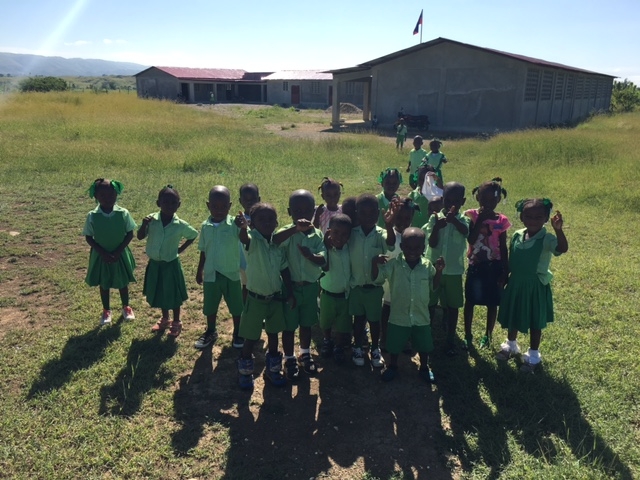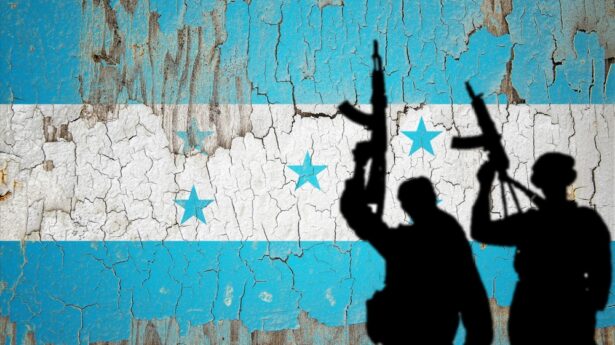The Unitarian Universalist Service Committee advances human rights through grassroots collaborations.
Haiti: The Enormity of the Struggle and the Sliver of Hope
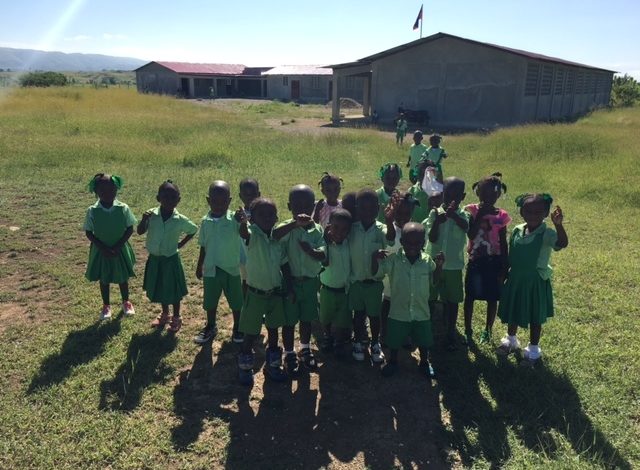
By Michael Kourabas on October 27, 2017
Read my pre-trip post, Haiti On My Mind.
It is hard to visit Haiti and not feel a deep sense of shame, anger, and pain, and I’ve choked up a few times since returning home. Spending any time in Haiti’s Central Plateau, as I just have, is a gut-punch reminder of the privilege of being born with white skin; the privilege of being born in the Global North; and the privilege afforded by an uncompromising power structure that benefits the few at the great expense of the many.
The structural disadvantages facing Haiti, particularly when experienced first-hand, can feel paralyzing. As Paul Farmer of Partners In Health wondered on the eve of the election of Jean Bertrand Aristide, it’s hard to imagine “what even a government of saints and scholars could do in the face of such odds.” And yet, across the country, communities continue to find creative ways to survive and grassroots movements like UUSC’s partner, Mouvman Peyizan Papay (MPP) continue to support them and help give them hope.
Both the enormity of the struggle and the sliver of hope are on display in the EcoVillages and the EcoVillage School. On my trip, I found that Village 1, the first village supported by UUSC after the earthquake, is thriving. It has a functioning solar-powered well for drinking water, two cisterns to catch rain and irrigate the village’s gardens, and a pleasant stream nearby. The gardens produce moringa, manioc (cassava), peanuts, mangoes, and papaya. Goats, which the village owns, live in an enclosure on a hill. On the day we visited, bags of recently harvested peanuts and corn leaned against the community center’s walls, waiting to be taken to market. There are two community motorcycles for transport, an ox to help plow the larger fields, and a few houses even have electricity.
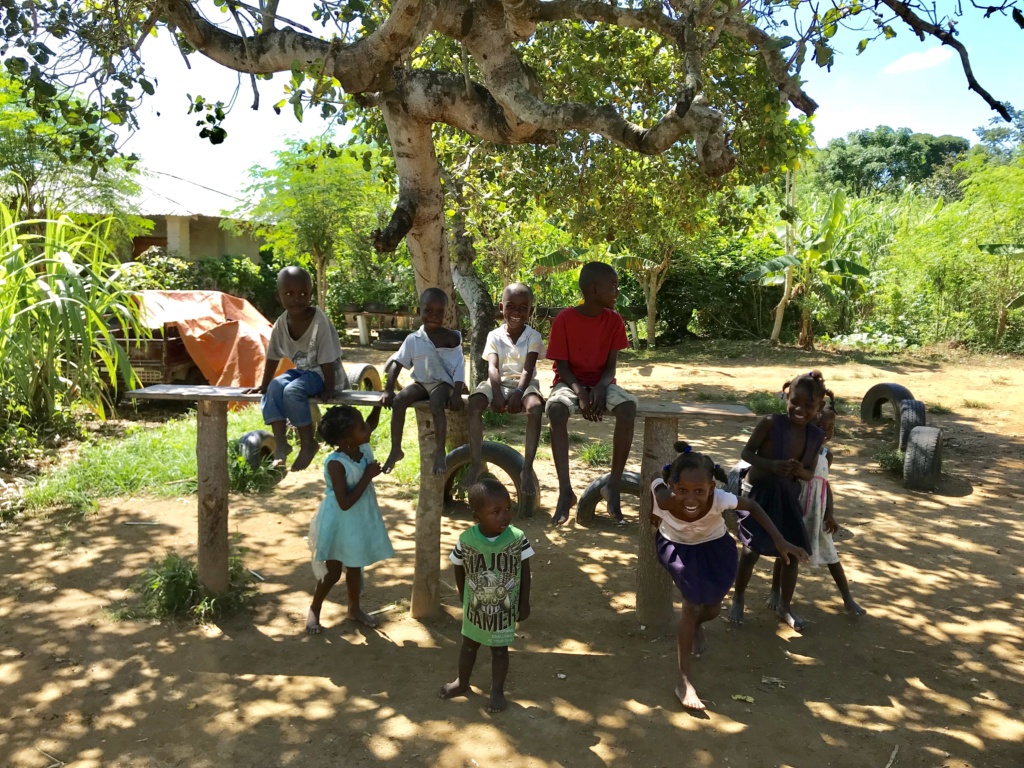
Village 5, on the other hand, continues to struggle. As with Village 2, the well has not been able to produce any water for over a year and hopes that the rainy season might sufficiently raise the water table were recently dashed. The drought may be over, but water is still absent here. Villagers who want drinking water must walk 30 minutes to Village 6, where a UUSC grant recently repaired another broken well, and then carry it back home. Every village but Village 1 also lacks electricity, the absence of which prevents anyone from doing much of anything after the vast darkness blankets the area each night.
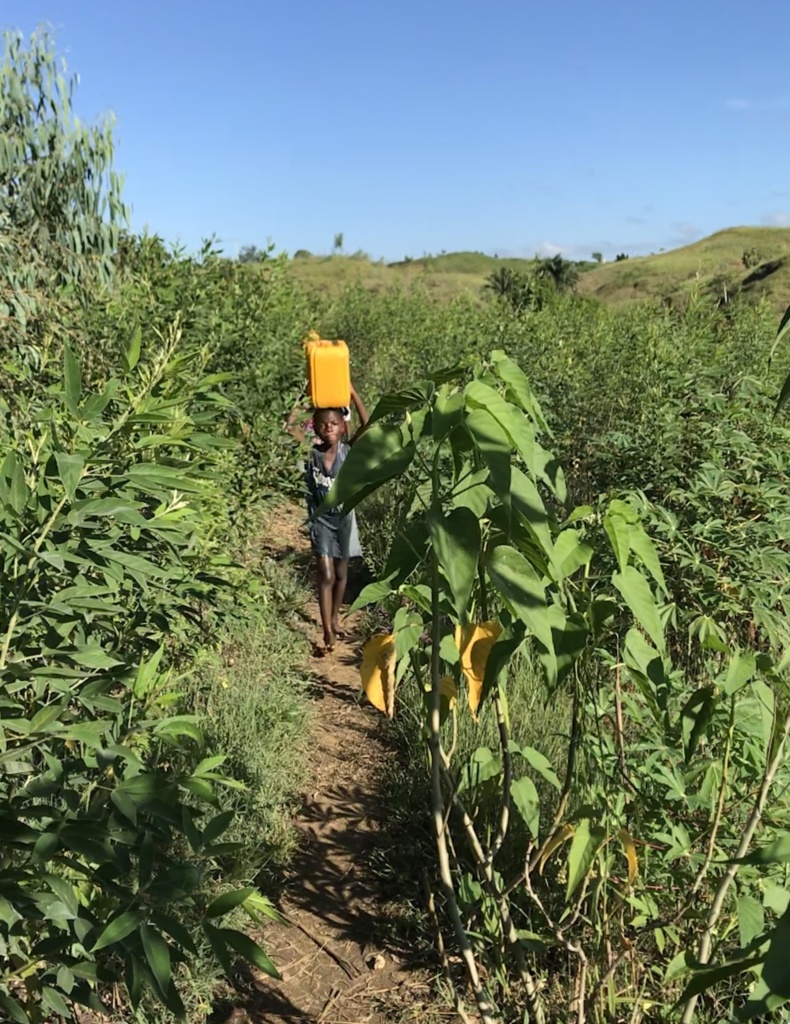
In spite of this, there are rays of light. A recent microloan project sponsored jointly by UUSC and our partners to support income-generating projects in the villages has begun to pay small dividends. With a loan from MPP, Village 5 planted a large field of manioc and peanuts, both of which can grow in harsh conditions. Despite failing to plant the manioc properly, the village succeeded in planting a large field of peanuts, which were nearly ready to harvest at the time of our visit.
The proceeds from the sale of these crops will not, in and of themselves, bring water or electricity to Village 5, but a portion will support the EcoVillage School. Hopefully, the village can use the remaining funds to strengthen their food sovereignty and incrementally improve their lives. In other words, some hope.
Students repeatedly told us of their passion for math. A few hoped to be engineers someday.
More hopeful still is the progress made by the EcoVillage School. Two years ago, the project was at a standstill: years behind schedule, students crowding into shared classrooms, nowhere for the students to eat lunch, and gardens suffering from the epic drought. When we visited last week, the student body had grown to 172 children. Four more classrooms had been built, allowing every grade from kindergarten through sixth to have individual space to learn. The school even has a separate kitchen, cafeteria, and food storage area now. Students repeatedly told us of their passion for math. A few hoped to be engineers someday.
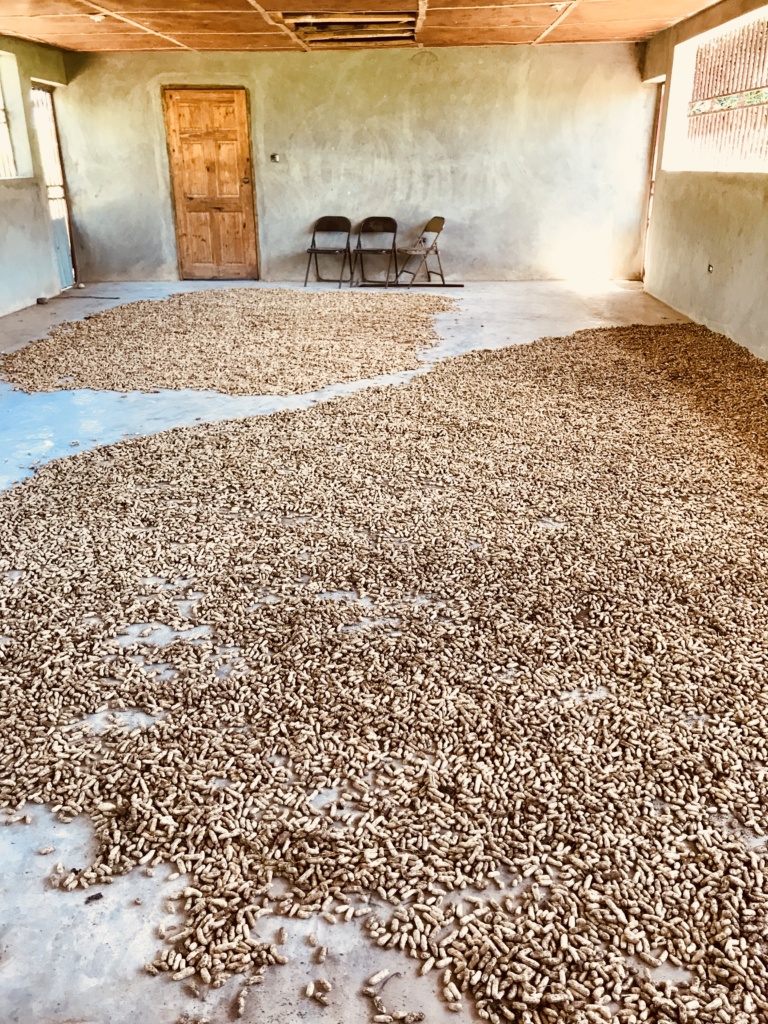
The vast gardens behind the school, once plagued by a protracted lack of rain, are now robust, growing moringa, pigeon beans, peanuts, and manioc. The school’s well delivers clean drinking water and virtually every student comes to school proudly wearing a bright green uniform. When we visited, Andraal, a parent living in Village 1, worked in the shade painting a new sign that would stand in front of the school, announcing the Institution Mixte Communautaire des EcoVillages de Colladere.
Of course, this being Haiti, there are still mountains left to climb. To qualify as a “government school,” thereby shifting hefty operating costs from MPP to the government, three more classrooms still need to be constructed. At least two more bathrooms must be built to accommodate the expanding student population. The school lacks a perimeter fence, which means that any equipment of value is at risk of theft. There is no system for irrigating the fields that support the school’s limited food program, and each of the food relief organizations to whom MPP has reached out for help has reported that they are too focused on hurricane relief in other parts of the country to worry about school lunches in the Central Plateau.
However, while the future of the school is still somewhat uncertain, it is surely a beacon. The community and its partners are committed to its future, and to the parents, children, and others in the Central Plateau, it represents hope. As the Haitian proverb goes, Lespwa se viv— “Hope makes one live.”
Thank you for virtually going on this journey with UUSC.
